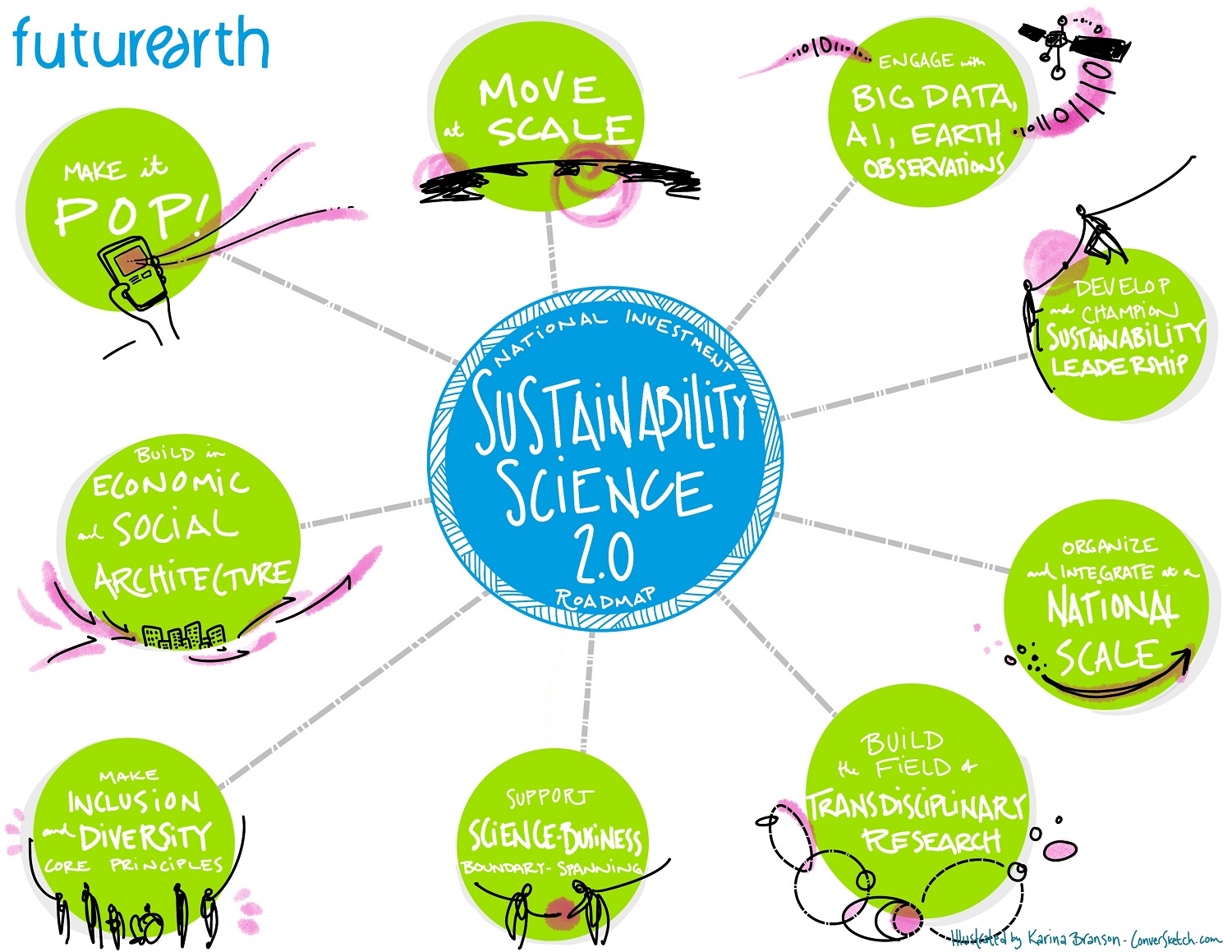Exploring the Future of US Sustainability Science at AAAS
Session Title: The Future of Sustainability Science in the United States
Time and Date: Sunday, February 16, 2020, 1:30 to 3:00 PM
Location: Washington State Convention Center – 6A
In the United States, sustainability research currently looks a little like Seattle’s Lake Union on the 4th of July – an abundance of ships, many different shapes and sizes, all attempting to navigate the same waters. We have scores of focused, nimble institutes, NGOs and university labs pushing hard on a few key sustainability issues, and we also host more large university-level initiatives and global non-profits than any other country. There is a lot of good will, some communication, but there is not a lot of agreement on the map, or the need for a common compass.
At the Annual Meeting of the American Association for the Advancement of Sciences, in Seattle, I will be moderating a panel based on a multi-event dialogue process called Sustainability Science 2.0, organized by Future Earth and the National Academies of Sciences, Engineering and Health’ Science and Technology for Sustainability Program. The focus is both on the map of US sustainability science, and the need for a common compass. The dialogue events we held in 2019 were designed to help us map the landscape as it is today, and chart a course towards a more inclusive, higher impact sustainability science system that both lowers barriers to integrative research and strengthens the links between sectors.

Participants in the panel will include Sally Jewell, interim CEO of The Nature Conservancy, who was also former US Secretary of the Interior, and past CEO of REI; Pamela Matson, a professor at Stanford, who is perhaps the most well recognized leader of sustainability science in the US, and a member of the Future Earth Advisory Committee; Michael Mendez, author of the 2020 book “Climate Change from the Streets” who has spent his career tackling the thorny intersection of climate change policy, social justice and inclusion. Rebecca Shaw, chief scientist for WWF; Judit Ungvari, AAAS Science and Technology Policy Fellow and I will serve as discussants and moderators.

The conversation at AAAS will unpack the dialogues, it will likely focus on the institutions and structures that are emerging now, and the gaps we need to fill to strengthen the voice of science, support current leaders, and train the next generation. Perhaps the most important element of this event, however, is what you bring in the door. Sustainability Science 2.0 is an idea born from the community, and it is one of many endeavors pushing for progress, cohesion, and connection in this space. The changes we need to see in the US systems that support sustainability science will happen fastest if we build a collective roadmap to a stronger, more coherent voice for integrated US sustainability scholarship in policy and practice decisions at local, regional, national and international scales.
Josh Tewksbury (@tewksjj, josh.tewksbury@futureearth.org) is the Director of the US Global Hub of Future Earth and Executive Editor of Anthropocene Magazine. Josh holds appointments at the University of Colorado, Boulder, Colorado State University and George Mason University, the three hosting institutions for Future Earth in the US.
DATE
February 7, 2020AUTHOR
Josh TewksburySHARE WITH YOUR NETWORK
RELATED POSTS
Spotlight on LMICs – Tired of Breathing in Pollutants? Time for Better Fuel Economy and Vehicle Standards
Future Earth Taipei Holds 2024 Annual Symposium
Spotlight on LMICs – The Future’s Juggernaut: Positioning Research as Anchors for Environmental Health